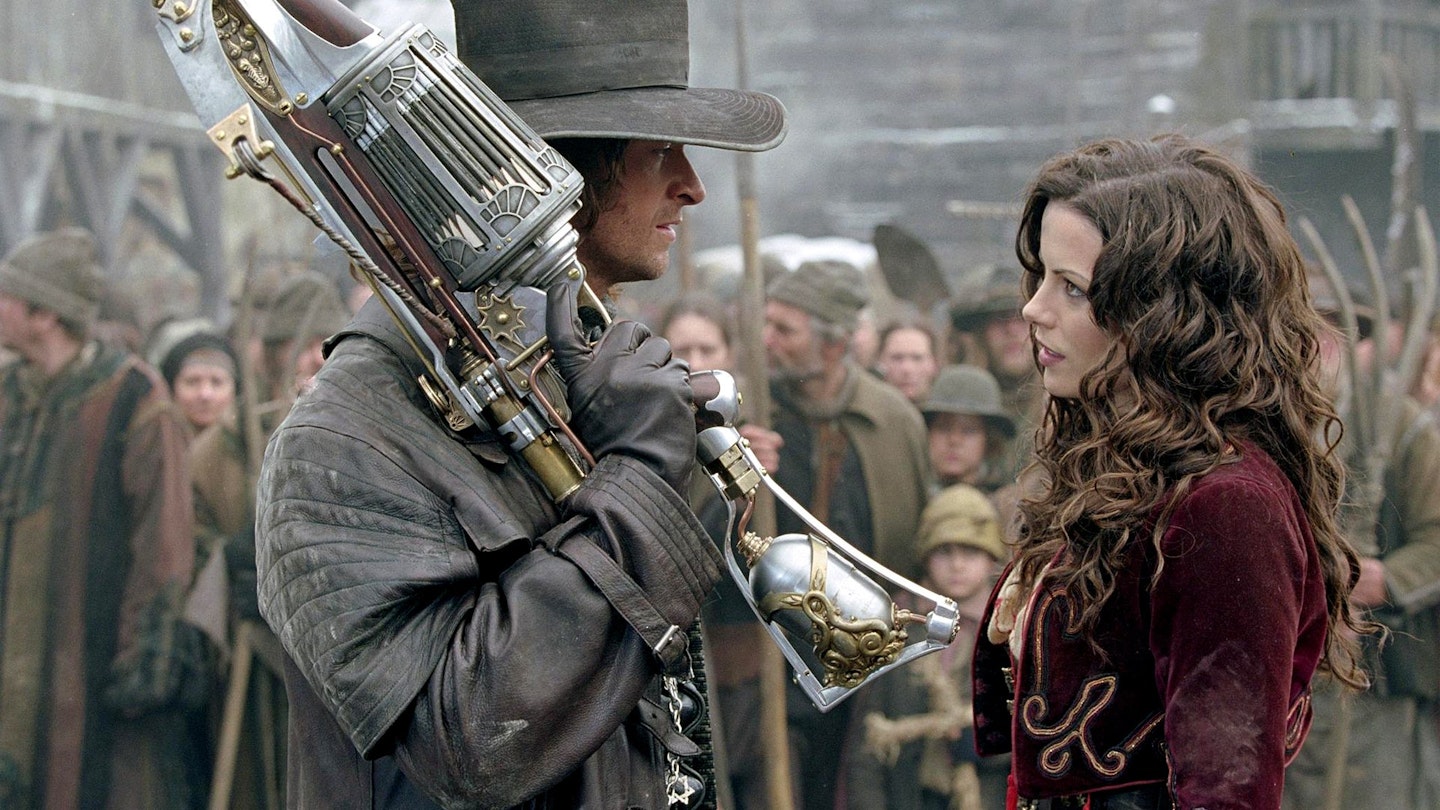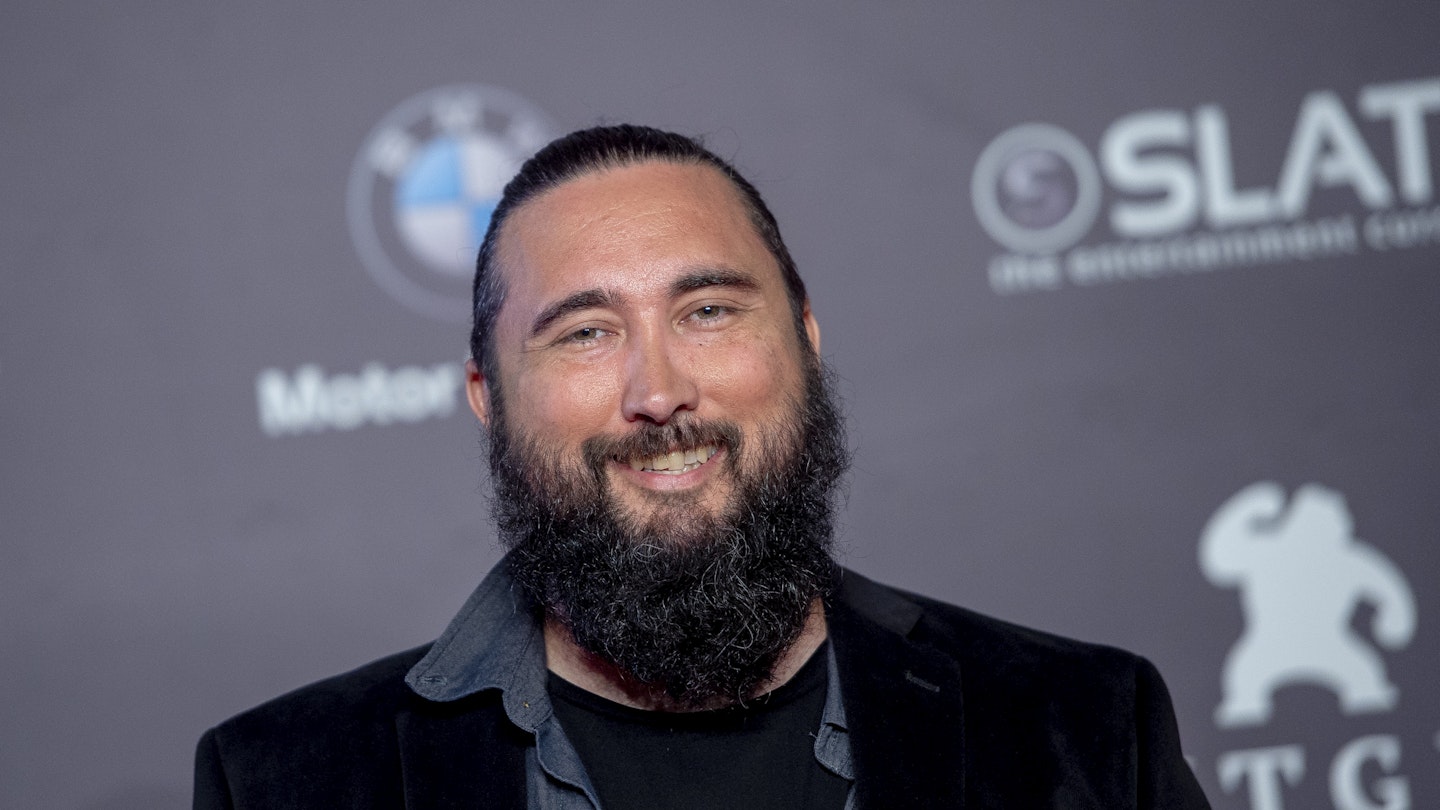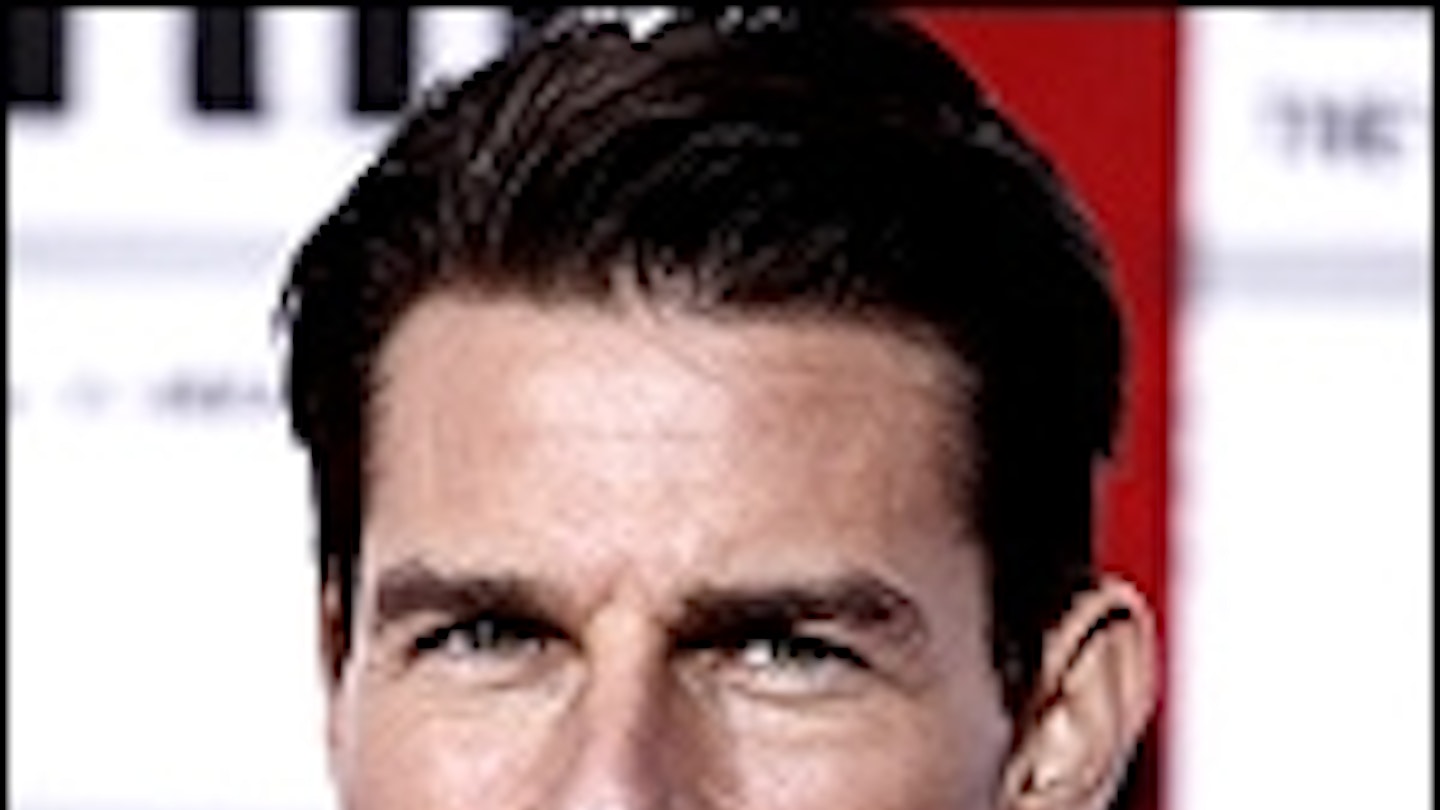Universal have a lot riding on Van Helsing. Aside from a tentpole $150 million summer blockbuster (and any potential sequels), the DVD reissue of the classic horror flicks, a computer game, a theme park ride, an animated prequel and a planned TV series will all live or die by a mass audience embracing Stephen Sommers’ monster mash-up.
Which might go some way to explaining why Sommers’ follow-up to his Mummy pictures tries so damn hard to entertain: a blitzkrieg of CG monsters, voluptuous production values and Alan Silvestri musical bombast, the result reaches overload very quickly, squandering the potentially cool premise in a headlong assault of set-piece over story.
Sommers sets his Cinema Of Excess manifesto from the outset, beginning with two prologues: the first a strikingly realised, black-and-white backstory for Dracula and pals — Sommers throws in every classic Universal trope, from Gothic castles, to angry villagers, to torchlight processions within the first two minutes — the second, the end of a previous Van Helsing mission in which Van The Man sees off Mr. Hyde in a full-on smackdown.
Yet rather than slowing down, we are thrown onto a runaway juggernaut of Event Sequences — Dracula’s winged brides strafe Anna’s village! The Wolf Man attacks! An escape by horse and carriage! Etc. etc. — that makes Temple Of Doom look like Tarkovsky.
There is an inescapable feeling that if Sommers had the confidence to jettison some of his action licks — do we really need to see our heroes swing across a CG castle so many times? — and put in some pauses for breath and character, Van Helsing would have been a much less wearing, more fulfilling experience.
Compounding the repetitive feel, the plot has a cyclical structure in which the events of the first half — Van Helsing must stop Dracula using The Wolf Man as a battery to revitalise his evil spawn — are practically repeated verbatim in the second half — Van Helsing must stop Dracula using Frankenstein’s Monster as a battery to revitalise his evil spawn.
Potential points of affecting human drama — Van Helsing and Anna’s growing attraction, Frankenstein’s Monster’s desire to live and the backstory between Van Helsing and Dracula — are squandered in the rush for the next pixel-packed punch.
Perhaps the biggest casualties of this kitchen sink-and-all mentality are the cast. Jackman, who, on paper, is the perfect modern matinée idol, is denied a single moment to inject character into his character, the minimal dialogue scenes tooled solely to forward what passes for a plot.
Adopting a borderline-camp East European accent, Beckinsale can do little with her vengeful vampire slayer. Only Richard Roxburgh is given space to etch a character, his Dracula, all flamboyant tics and hissy fits, coming on like a bassist from some defunct New Romantic outfit.
As a director, Sommers orchestrates with maximum hustle and bustle, his computer-controlled camera swooping and soaring with the winged Brides Of Dracula, his editing strategies juxtaposing storylines at a dizzying rate. But he has none of the relentless logic or beautifully-crafted artistry of a Zemeckis or Cameron.
Moreover, he has little idea how to develop dread or cultivate creepiness. For all its purported relationship to its fêted horror forebears, Van Helsing does not offer up anything like a genuine chill.
Occasionally, there are grace notes that suggest an underlying intelligence. During Van Helsing’s introductory skirmish with Mr. Hyde, a half-built Eiffel Tower dominates the Parisian skyline, neatly locating the hero in time and place. Later, at a bustling masqued ball, a shot in a mirror reveals Anna to be the only mortal dancing, a smart, sly use of the vampires-don’t-have-reflections mythos.
That these little moments linger far longer than any of the supposed showstoppers could be a lesson well worth heeding before the inevitable Van Helsing 2.


